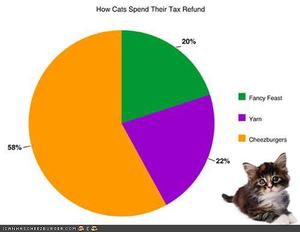Explore Small Business Finance Topics
Discover our most popular topics for Canadian solopreneurs and small business owners. From income tax and GST/HST to QuickBooks tutorials and managing your business finances, these guides are designed to help you move from financial uncertainty to financial confidence.
Click on any topic and scroll down to see related articles.
📑Canadian Income Tax
Guidance on filing and planning your Canadian taxes, from T1 and T2 returns to instalments
📊Managing Business Finances
From cash flow to pricing and metrics — learn to manage your business finances with confidence.
🏢 Canadian Business Structure
Should you incorporate? Stay informed on sole proprietorships, corporations, and registrations.
💰 GST/HST & QST
Understand how to register, file, and maximize input tax credits while avoiding common mistakes.
🧾 Guides and Tutorials
Practical accounting processes like reconciliations, journal entries, and reporting.
📝 Deductions & Expenses
Learn which expenses are CRA deductible and how to track them for maximum tax savings.
Quebec Taxes & Business
QST, Revenu Québec filings, Quebec payroll, and provincial rules every entrepreneur should know.
👤 Paying Yourself
Salary vs dividends, management fees, and how to pay yourself from your corporation or small business.
💻 QuickBooks Online & Tools
Tutorials, guides and time-saving tips for using QuickBooks Online effectively.
🏦 Money & Personal Finance
Personal finance strategies for entrepreneurs, from RRSPs to saving for taxes.

Guidance on Registering for Payroll and Remitting Source Deductions
There comes a time for many small business owners when they decide that they need to hire employees. This is usually an excellent sign as it means a) the business is growing and b) the small business owner has learned to delegate. It also means that additional paperwork needs to be filled out and additional taxes need to be paid. The simplest option when deciding to augment your workforce is to have the new worker invoice the business, based on hours worked or some other formula. Unfortunately, there are very specific rules as to who qualifies as a self employed contractor. Essentially, if your have someone that works full time, has little flexibility with respect to the hours that they work and you provide the tools such as a desk/office, computer etc, then there is a good chance that the tax authorities will classify them as an employee. In this case, where your worker is clearly an employee, you must register for payroll, pay them a salary and submit regular, periodic payroll reports and payments to the Canada Revenue Agency (CRA). As usual, if you live in Quebec, you must submit to Revenue Quebec (MRQ) as well.

4 Alternatives for Preparing Your Small Business Payroll
Paying salaries to employees (or yourself) requires more than just determining the gross amount to be paid. The Canada Revenue Agency and Revenue Quebec require that employers calculate a variety of taxes on the salaries paid, remit them to the federal and provincial governments and prepare annual reports demonstrating that the calculations are correct and all salary deductions have been paid. This can be a lot of work for business owners whose time is better spent generating sales and building their businesses. Luckily there are many options for small business owners to calculate their payroll and salary remittances, many of which simplify the process:

Tax Obligations Every Canadian Small Business Should Know
It is therefore prudent for both sole proprietorships and incorporated businesses to keep on top of their tax filings.
In this article I enumerate the tax obligations for most small businesses in Canada along with links to articles to help you understand each one better.

Information on Filing T4s/RL-1s and T4As for Small Business Owners
When I was employee, I never really gave much thought to the T4 (and the Quebec equivalent RL-1) process. I knew that sometime around February an envelope would appear on my desk with a tax document which I would need to reflect on my tax return. I suppose I thought that someone, somewhere pressed a button and the T4s were generated. When I became a small business accountant, who was now either responsible for preparing this information or providing guidance to my clients, I realized that the process was somewhat more complicated.

Understanding Payroll Deductions: Personal Income Tax Rates, CPP/QPP, EI and Basic Exemption
The automation of the tax preparation and filing process has been a boon to individuals and tax preparers alike. Gone are the days of struggling to find the right box on the return, adding everything up 5 times and still getting different results, and hoping that the CRA can read your chicken scrawl. Present day tax software not only guides you through every step of the process, it also helps to optimize your allocations thereby reducing your taxes payable. There is however at least one downside to automation: Since we are more removed from the actual calculations, our understanding of our tax situation is somewhat diminished. We have an idea of what we expect to pay, which we can see every week on our paycheques (or for self employed individuals, the breathtaking moment when we see the final result on our tax return), but often we are not really sure how these amounts are derived. Below is a discussion of the tax rates, deductions and maximums to improve our comprehension of this somewhat complex topic:
